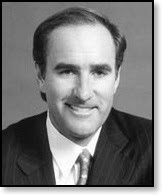
As the dust begins to settle after the several governmental regulatory reforms of recent years, corporations can begin to refocus their strategies from compliance with new legislation and begin to push forward into the brave new world of developing strategies to increase value for shareholders and innovation and growth.
According to Dennis Carey, executive recruiter and corporate strategy consultant, it would behoove corporations to link the human capital of the board of directors to the long-term strategy created by management. This is the direction Dennis Carey would like to see the next wave of governance reform, and he believes this is the path to increased value for shareholders.
Carey bemoans the fact that although boards may approve a particular strategy, they have little role in developing and shaping that strategy.
As Dennis Carey puts it,
“Now that innovation and growth increasingly drive the top executive's agenda and major business trends emerge in the blink of an eye, strategically minded boards that forge close partnerships with management will prove to be the crucial difference between companies that create superior shareholder value and those that don't.”


